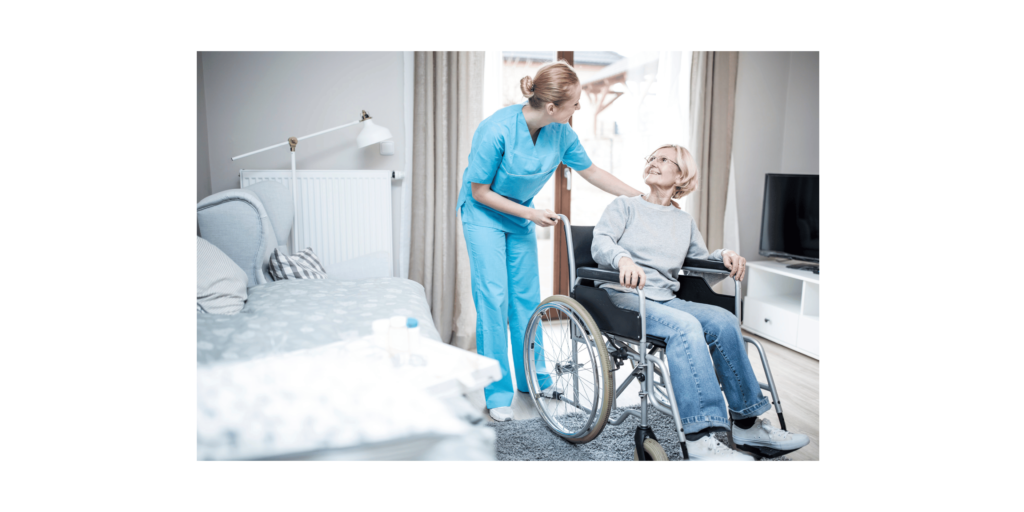Introduction
For disabled adults in India, managing daily activities and healthcare needs can present unique challenges. In such situations, the option of in-home care offers a ray of hope. In-home care services bring skilled medical professionals, including doctors at your door, to provide personalized care and support within the comfort of one’s home. This article delves into the numerous benefits of in-home care for disabled adults in India, highlighting the importance of this compassionate and tailored approach to healthcare.
1. Enhanced Comfort and Familiarity
a) In-home care enables disabled adults to receive essential medical attention without leaving the familiar surroundings of their home.
b) Being in a familiar environment reduces stress and anxiety, contributing to overall well-being.
c) The comfort of being surrounded by loved ones fosters emotional support and positivity.
2. Personalized and Tailored Care
a) In-home care services are designed to address the specific needs and requirements of each disabled adult individually.
b) Care plans are personalized to accommodate unique medical conditions, mobility challenges, and lifestyle preferences.
c) The one-on-one attention from medical professionals ensures a comprehensive and attentive approach to care.
3. Comprehensive Medical Support
a) Doctors at your door offer expert medical assessment, diagnosis, and treatment, right at the patient’s home.
b) Regular monitoring of health conditions and medication management help prevent potential complications.
c) In-home care also includes nursing services, physiotherapy, and occupational therapy, as needed.
4. Independence and Dignity
a) In-home care empowers disabled adults to maintain a level of independence in their daily activities.
b) Support is provided to enable self-care and participation in routine tasks, fostering a sense of dignity and self-worth.
c) The preservation of autonomy contributes to a higher quality of life and a positive outlook on the future.
5. Cost-Effective Solution
a) In-home care can be a cost-effective alternative to hospitalization or long-term care facilities.
b) It reduces expenses associated with prolonged hospital stays and minimizes transportation costs for regular medical appointments.
c) The ability to receive medical attention at home also prevents unnecessary hospital readmissions.
6. Emotional Support for the Family
a) In-home care alleviates the burden on family members, allowing them to focus on their relationships and emotional well-being.
b) Families can participate in the care process, facilitating a stronger support system for the disabled adult.
c) Open communication between caregivers and families ensures everyone is on the same page regarding the patient’s health.
7. Reduced Risk of Infections
a) Home environments have a lower risk of exposure to hospital-acquired infections and contagious illnesses.
b) Disabled adults with compromised immune systems benefit from the reduced risk of infections.
c) In-home care providers maintain strict hygiene protocols, further minimizing the risk of infections.
8. Convenience and Flexibility
a) In-home care offers flexible scheduling, allowing patients to receive medical attention at their convenience.
b) Appointments can be tailored to fit the patient’s routine and preferences.
c) In case of emergencies, medical professionals are readily available to address urgent situations.
9. Continuity of Care
a) In-home care ensures consistent and continuous care for disabled adults, promoting better health outcomes.
b) The same team of caregivers and doctors can develop a deep understanding of the patient’s medical history and specific needs.
c) Continuous care reduces the risk of misunderstandings and ensures seamless coordination of medical services.
10. Holistic Approach to Well-Being
a) In addition to medical care, in-home services focus on the overall well-being of the disabled adult.
b) This includes assistance with nutrition, emotional support, and engagement in enjoyable activities.
c) A holistic approach fosters a sense of fulfillment and happiness in the patient’s life.
Conclusion
In-home care is a compassionate and beneficial approach to healthcare for disabled adults in India. Doctors at your door and skilled medical professionals provide personalized, comprehensive, and flexible care within the comforts of home. From promoting independence and dignity to reducing the risk of infections and improving the overall quality of life, the advantages of in-home care are undeniable. Embracing this patient-centric and holistic approach ensures that disabled adults receive the support and attention they deserve, empowering them to lead fulfilling lives and promoting the well-being of their families.















